|
Brought to you by Dairy's Professional Development Organization®
|
|
Opportunities to learn...
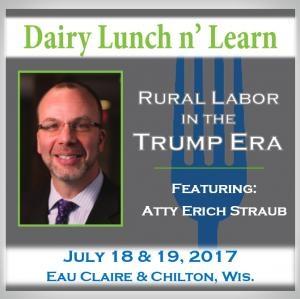 DISCUSS RURAL LABOR IN THE TRUMP ERA AT A 'LUNCH N' LEARN'
with Erich Straub, an immigration attorney with more than a decade of experience with dairy farmers. Straub will provide an overview of the new administration's immigration enforcement rules and discuss the implications of promises made for future actions. Attendance exclusive to dairy farmers, Straub will help farmers understand what is rhetoric, what is reality, and outline the risks for those that rely on immigrant labor, including help to prepare for worst-case scenarios. Sessions will be held from 11:30 a.m. to 2:30 p.m. on Tuesday, July 18 in Eau Claire and Wednesday, July 19 in Chilton. More details and registration information available here. Earn up to 2 Dairy AdvanCE Continuing Education (CE) Credits. DISCUSS RURAL LABOR IN THE TRUMP ERA AT A 'LUNCH N' LEARN'
with Erich Straub, an immigration attorney with more than a decade of experience with dairy farmers. Straub will provide an overview of the new administration's immigration enforcement rules and discuss the implications of promises made for future actions. Attendance exclusive to dairy farmers, Straub will help farmers understand what is rhetoric, what is reality, and outline the risks for those that rely on immigrant labor, including help to prepare for worst-case scenarios. Sessions will be held from 11:30 a.m. to 2:30 p.m. on Tuesday, July 18 in Eau Claire and Wednesday, July 19 in Chilton. More details and registration information available here. Earn up to 2 Dairy AdvanCE Continuing Education (CE) Credits.
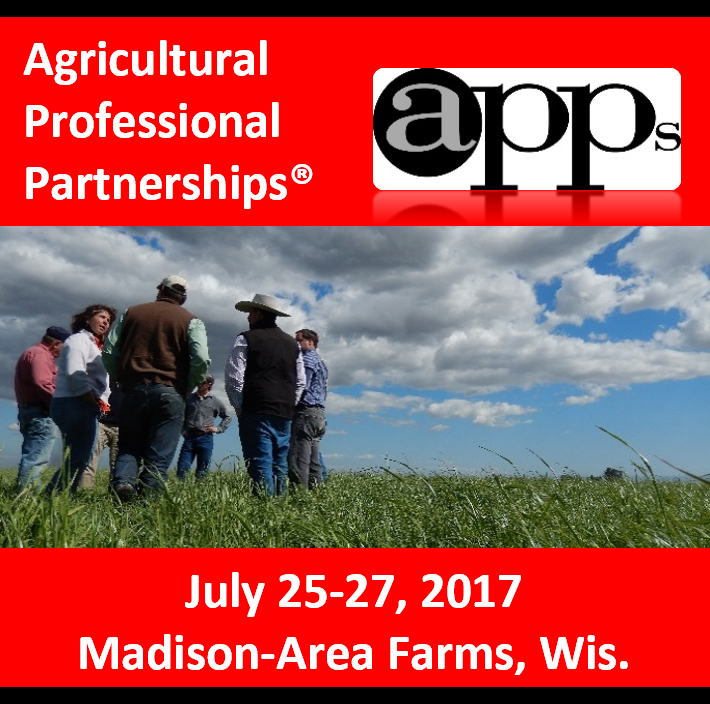
AGRICULTURAL PROFESSIONAL PARTNERSHIPS® - (APPs) TRAINING FOR NON-FARM PROFESSIONALS
is designed to provide on-farm training and perspective to agriculture industry professionals with limited on-farm experience. The program includes three modules - Fundamentals of Dairy Science; Farming, Fields and Food Fundamentals; and Fundamentals of Dairy Business Management - that will combine classroom training and on-farm experience. With space limited to the first 15 professionals, each day is designed to target key modern dairy farming topics, challenges and opportunities.
The program will be July 25-27 with the Crowne Plaza hotel in Madison, Wis. as the meeting location. Learn more
here
or call PDPW at 800-947-7379 for details and to register. Earn up to 22.5 Dairy AdvanCE Credits.
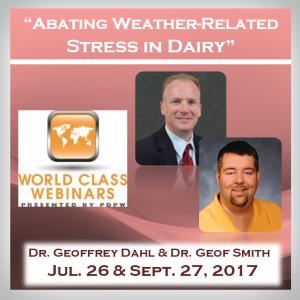 WORLD CLASS WEBINARS "ABATING WEATHER-RELATED STRESS IN DAIRY COWS" will be the topic of the Wednesday, July 26, World Class Webinar from 12 p.m. to 1 p.m. CDT. Dr. Geoffrey Dahl of the University of Florida will discuss the effects of heat stress during the dry cow period and understanding why keeping dry cows cool and comfortable in the summer is beneficial to her, the calf, and the dairy producers' bottom line. Participants will learn what heat stress can do to mammary growth, metabolism and immune function and how these effects lead to a more challenging transition and result in a lower yield in the next lactation. Dahl will also discuss the impact of in-utero heat stress on the calf and review the economic impacts of dry cow cooling. Participants can watch the webinar live or the recorded session later. To learn more click here or call PDPW at 800-947-7379. WORLD CLASS WEBINARS "ABATING WEATHER-RELATED STRESS IN DAIRY COWS" will be the topic of the Wednesday, July 26, World Class Webinar from 12 p.m. to 1 p.m. CDT. Dr. Geoffrey Dahl of the University of Florida will discuss the effects of heat stress during the dry cow period and understanding why keeping dry cows cool and comfortable in the summer is beneficial to her, the calf, and the dairy producers' bottom line. Participants will learn what heat stress can do to mammary growth, metabolism and immune function and how these effects lead to a more challenging transition and result in a lower yield in the next lactation. Dahl will also discuss the impact of in-utero heat stress on the calf and review the economic impacts of dry cow cooling. Participants can watch the webinar live or the recorded session later. To learn more click here or call PDPW at 800-947-7379.
 MARK YOUR CALENDAR FOR A DAIRY DIALOGUE DAY™ TOUR MARK YOUR CALENDAR FOR A DAIRY DIALOGUE DAY™ TOUR in south-central Wisconsin.
Exclusive to dairy farmers, participants will tour two high-performing dairies, engage in conversations with tour hosts and fellow dairy producers and return home with new and practical ideas and insights. The August 16 tour will depart from Prairie du Sac, Wis. and travel to Lodi for a stop at Wargo Acres, owned and operated by the Carncross family. After pen-side dialogue and discussion, the group will continue to the next stop at Blue Star Dairy, owned and operated by the Meinholz family near Middleton, Wis.
Space is limited to the first 50 dairy farmer registrations and the tour includes bus travel, refreshments and lunch.
Register online
for Dairy Dialogue Day™ or contact PDPW at 800-947-7379 with questions.
Earn up to 4 Dairy AdvanCE Credits.
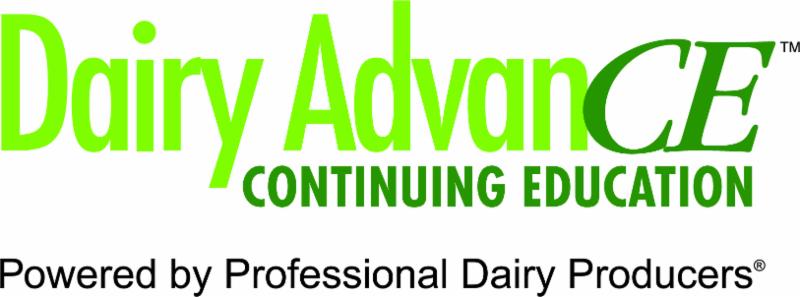 WHAT ARE DAIRY ADVANCE™ CONTINUING EDUCATION CREDITS? WHAT ARE DAIRY ADVANCE™ CONTINUING EDUCATION CREDITS? PDPW is proud to
introduce and invite you to participate in Dairy AdvanCE - the nation's first go-to resource to find, track and report continuing education in dairy. Farmers and allied industry can now find vetted trainings from trusted education providers, track and manage their continuing education credits (CEs), and report their CEs through an official transcript.
With over 300 active dairy subscribers, we are proud of the uptake from dairy farmers and other allied industry dairy professionals. You can see our past and future accredited trainings, as well as other top-quality educational offerings from trusted education providers like ours, at
DairyAdvanCE.org.
Dairy farmers and active students subscribe for FREE and allied industry professionals can use a FREE 30-day trial subscription.
Join Today or to learn more
watch this video.
For questions email: mail@dairyadvance.org, or for additional discussion call 800-947-7379.
|
For your dairy...
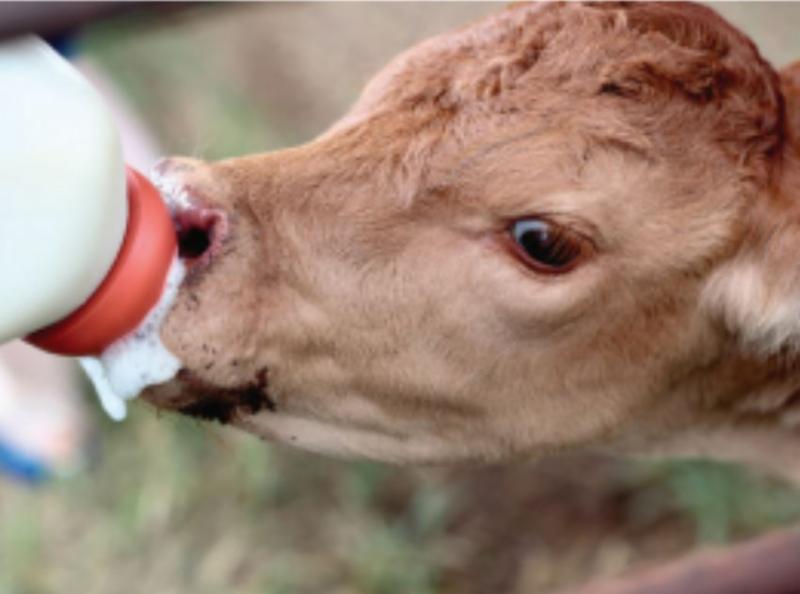 FEEDING WASTE MILK TO CALVES FOSTERS PRESENCE OF RESISTANT BACTERIA in the lower gut and respiratory tracts, according to recent research in the Journal of Dairy Science. Researchers conducted the study to determine the antimicrobial resistance patterns of fecal E.coli and nasal Pasteurella multocida isolates from calves fed either milk replacer or waste milk in 8 commercial dairy farms. Fecal and nasal swabs were collected from 20 +/- 5 dairy calves at about 42 days, and from 10 of those at approximately 1 yr. of age in each study farm to isolate the targeted bacteria. Resistance of E.coli isolates from calf-environment and from 5 calves at birth and their dams was also evaluated in each study farm. A greater number of fecal E.coli resistant to ENR, florfenicol, and streptomycin and more multidrug-resistant E. coli phenotypes were found in feces of calves fed waste milk. From nasal samples, an increase in colistin-resistant P. multocida was observed in calves fed waste milk. Read more here
. FEEDING WASTE MILK TO CALVES FOSTERS PRESENCE OF RESISTANT BACTERIA in the lower gut and respiratory tracts, according to recent research in the Journal of Dairy Science. Researchers conducted the study to determine the antimicrobial resistance patterns of fecal E.coli and nasal Pasteurella multocida isolates from calves fed either milk replacer or waste milk in 8 commercial dairy farms. Fecal and nasal swabs were collected from 20 +/- 5 dairy calves at about 42 days, and from 10 of those at approximately 1 yr. of age in each study farm to isolate the targeted bacteria. Resistance of E.coli isolates from calf-environment and from 5 calves at birth and their dams was also evaluated in each study farm. A greater number of fecal E.coli resistant to ENR, florfenicol, and streptomycin and more multidrug-resistant E. coli phenotypes were found in feces of calves fed waste milk. From nasal samples, an increase in colistin-resistant P. multocida was observed in calves fed waste milk. Read more here
.
GRADUAL WEANING DELIVERS BENEFITS TO DAIRY CALVES according to research in the Journal of Dairy Science. Researchers noted that the benefits of feeding elevated quantities of milk to dairy calves is known, but producers have been reluctant to adopt these practices due to weaning concerns. The study compared the effect abrupt (zero day step-down) and gradual (12 day step-down) feeding plan where calves are fed higher amounts of milk replacer. Calves were offered 1.35 kg of milk replacer per day and weaned at 48 days. The results showcase the benefits of a step-down feeding strategy from an overall energy balance standpoint as a result of increased adaptation of the gastrointestinal tract pre-weaning. Learn more here.
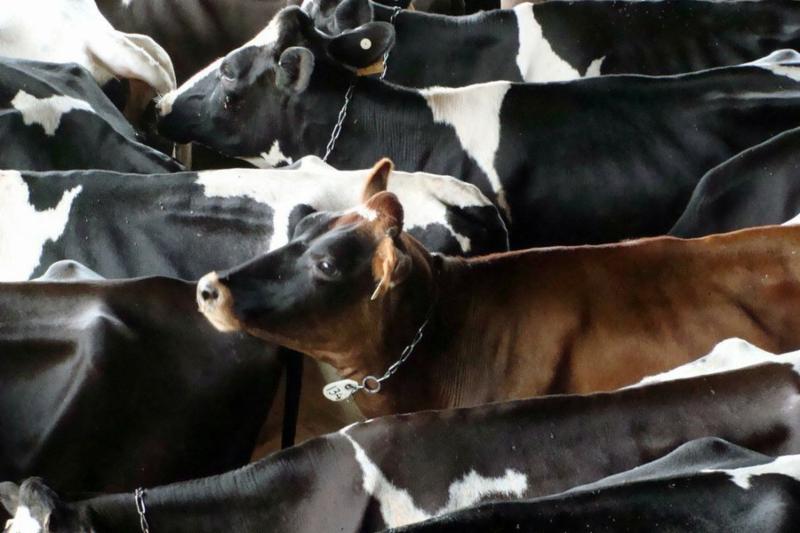 MEASURE AND MONITOR COWS' TIME AWAY FROM "HOME"
to ensure best performance. Research has shown that cows that are away from their pen more than 3.5 to 3.7 hours each day results in lower milk yields, less lying time and increased lameness. Measure the time "away from pen" by recording the interval when the first cow leaves the pen to when the last one returns, then track the time spent at each activity during that interval, such as
walking to holding pen, time in holding pen, time in parlor, etc. Carefully review each activity and look for ways to improve efficiency. Small changes can add up, especially for cows leaving the pen for milking three times per day. Click
here
for more information from Penn State Extension. MEASURE AND MONITOR COWS' TIME AWAY FROM "HOME"
to ensure best performance. Research has shown that cows that are away from their pen more than 3.5 to 3.7 hours each day results in lower milk yields, less lying time and increased lameness. Measure the time "away from pen" by recording the interval when the first cow leaves the pen to when the last one returns, then track the time spent at each activity during that interval, such as
walking to holding pen, time in holding pen, time in parlor, etc. Carefully review each activity and look for ways to improve efficiency. Small changes can add up, especially for cows leaving the pen for milking three times per day. Click
here
for more information from Penn State Extension.
|
Hit the road...
WHETHER YOU ARE LOOKING FOR A QUICK GETAWAY, or a break during a long road trip, we're excited to share ideas for dairy stops this summer. For the next few months, we'll highlight dairy farm tours, creameries and opportunities to try new dairy farm treats. Let us know what you enjoyed, and share your suggestions for stops!
 HANSEN'S DAIRY HANSEN'S DAIRY
8461 Lincoln Rd., Hudson, Iowa
--- additional retail locations in Waterloo and Cedar Falls
Owned and operated by Jay & Jeanne Hansen, their four sons and families
HANSEN'S DAIRY features a full line of milk, butter, cream, cheese curds, hard and soft serve ice cream, and custom ice cream cakes produced in their on-farm creamery. Tours and visitor center are available at the dairy. Learn more on their
web site and
Facebook page.
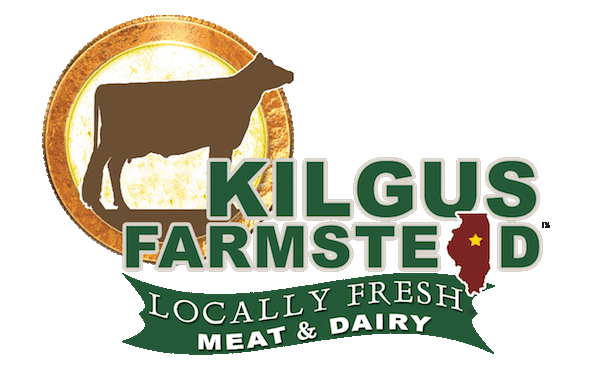 KILGUS FARMSTEAD KILGUS FARMSTEAD
21471 E. 670 N. Rd., Fairbury, Illinois
Owned and operated by the Kilgus family
KILGUS FARMSTEAD COUNTRY STORE features bottled milk and cream and meats from their farm's goats, steers and hogs. A viewing window at the store allows
visitors to watch the milk bottling process and scheduled tours are available of the farm. Learn more on their
web site
and
Facebook page
.
|
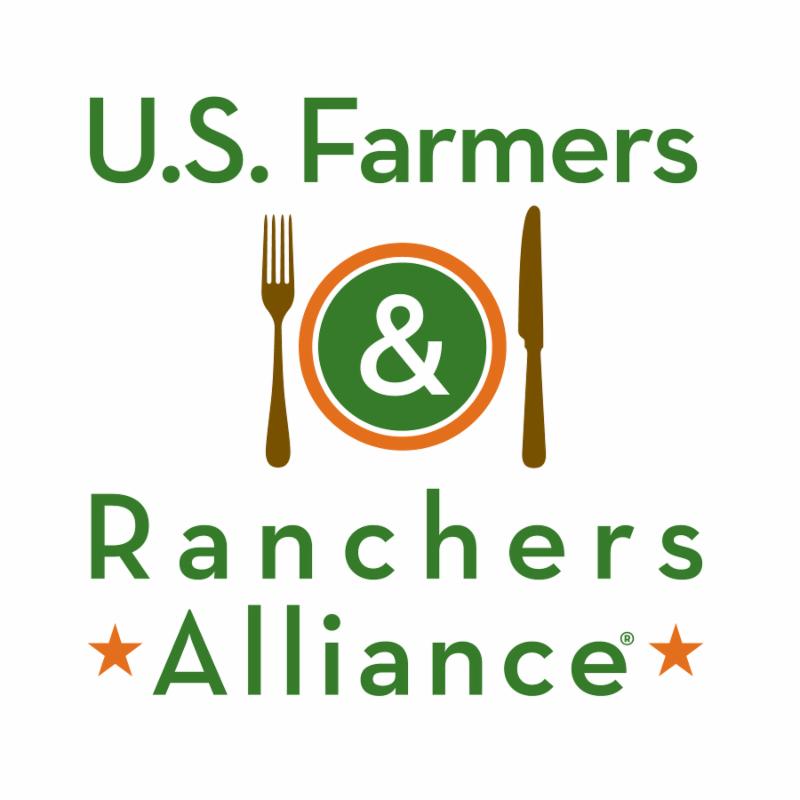 U.S. FARMERS MAKING STRONG PROGRESS IN SUSTAINABILITY.
A combination of new technologies and changing practices have helped U.S. farmers, and dairy farmers in particular, make significant strides in lessening their environmental impact, according to a recent report from the U.S. Farmers and Ranchers Alliance. For example, to enhance water conservation, dairy farmers are reusing water about 5-6 times every day, and many farms are using methane digesters to convert manure, food waste and other organic matter into biogas which powers parts of their dairy operation. Compared to 70 years ago, the dairy industry uses 65% less water, 90% less land and has reduced manure production by 76%. Read more about progress in all sectors of U.S. crop and livestock production
here
. U.S. FARMERS MAKING STRONG PROGRESS IN SUSTAINABILITY.
A combination of new technologies and changing practices have helped U.S. farmers, and dairy farmers in particular, make significant strides in lessening their environmental impact, according to a recent report from the U.S. Farmers and Ranchers Alliance. For example, to enhance water conservation, dairy farmers are reusing water about 5-6 times every day, and many farms are using methane digesters to convert manure, food waste and other organic matter into biogas which powers parts of their dairy operation. Compared to 70 years ago, the dairy industry uses 65% less water, 90% less land and has reduced manure production by 76%. Read more about progress in all sectors of U.S. crop and livestock production
here
.

CHANGES TO FOOD NUTRITION FACTS LABELS WERE DELAYED
by the Food & Drug Administration earlier this month. Changes to the 20-year-old labeling panel, including larger font for calories and serving size and addition of information about added sugars, were due to be implemented in June 2018.
The delay is expected to allow food companies to also incorporate labeling as a result of the GMO labeling law that passed in 2016, however the USDA has until July 2018 to finish the required rules to implement the new law. Learn more about these changes and other trends impacting labeling of health information on food products in
this article
.
CONSUMERS CAN "HANDLE THE TRUTH" AND WANT TRANSPARENCY
about food products and the grocery stores where they purchase them, according to results of the U.S. Grocery Shopper Trends 2017 report published by the Food Marketing Institute (FMI). Analysis of the study showed that shoppers want more than just information, but "honest clarity" that can assure them of the safety, health and origin of their food. The report outlined five categories of transparency:

- Easy access to relevant product information
- Clear quality standards
- Productivity and accountability
- Fair treatment of employees
- Open about business practices
Learn more about the study and results
here
.
|
For your business mind...
PAIRING "REAL SKILLS" WITH VOCATIONAL SKILLS DELIVERS SUCCESS
for businesses that are hiring team members, according to entrepreneur and author Seth Godin. His blog outlines why he refers to interpersonal relationship and leadership skills as "real skills" instead of the more popular term soft skills, and why companies should look for these skills in new hires and invest in training. "Vocational skills," or the technical abilities needed for a specific job are still key, but an effective team must develop both. He highlights five categories of real skills to build in your organization:
- Self Control - Once you've decided that something is important, are you able to persist in doing it, without letting distractions or bad habits get in the way?
- Productivity - Are you able to use your insights and your commitment to actually move things forward?
- Wisdom - Have you learned things that are difficult to glean from a textbook or a manual?
- Perception - Do you have the experience and the practice to see the world clearly?
- Influence - Have you developed the skills needed to persuade others to take action?
HOW LONG SHOULD WE KEEP HR RECORDS?
It can be easy to be overwhelmed with the amount of paperwork generated by recruiting, hiring, training and maintaining your employees. Whether it is a file cabinet full of or papers, or a computer full of files, how long do you need to keep HR-related records? A few guidelines include: 
- Keep hiring records such as resumes, job postings and interview notes for one year after the decision to make a job offer was made.
- Keep payroll and timecard records for employees for three to five years after termination.
- Maintain I-9 forms for three years after hire, or one year after termination, whichever is later.
Check out this
blog post
for details and more guidelines, but also remember that state and federal laws may differ and to check with your financial or legal counsel for specific questions related to your farm.
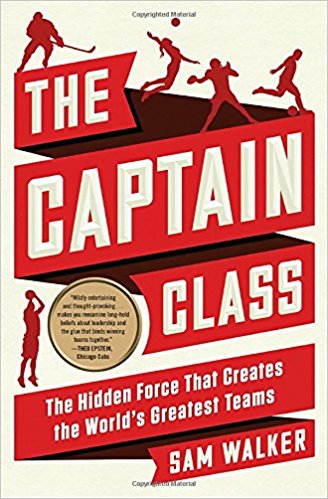 BOOK REVIEW -
THE CAPTAIN CLASS: THE HIDDEN FORCE THAT CREATES THE WORLD'S GREATEST TEAMS
The founding editor of the Wall Street Journal's sports section profiled the greatest teams in history and identified the leadership qualities of the often unconventional men and women who led them to success. He developed a formula to determine the best teams and applied it to thousands of teams from leagues around the world, then found a pattern. Each team had a singular leader with an unconventional set of skills who drove it to achieve greatness. He identified the seven attributes of these leaders and outlines each with examples in his book. BOOK REVIEW -
THE CAPTAIN CLASS: THE HIDDEN FORCE THAT CREATES THE WORLD'S GREATEST TEAMS
The founding editor of the Wall Street Journal's sports section profiled the greatest teams in history and identified the leadership qualities of the often unconventional men and women who led them to success. He developed a formula to determine the best teams and applied it to thousands of teams from leagues around the world, then found a pattern. Each team had a singular leader with an unconventional set of skills who drove it to achieve greatness. He identified the seven attributes of these leaders and outlines each with examples in his book.
|
"What is now proved, was once only imagined." --- William Blake
|
|
A BIG Thank You...
TO OUR PDPW SPONSORS who
support continuous improvement for the dairy industr
y.
T
hey believe in producer leadership and place a high value on lifelong
education for those involved in the dairy industry. We deeply respect their commitment to PDPW and the members we have the honor to serve.
Along with our Mission Sponsors, our Corporate and Event Sponsors continue to invest and build a strong industry. If you interact with any of these companies, please thank them for supporting PDPW!
If you or a company you know is interested in participating as a sponsor, please contact one of our team members at
abonomie@pdpw.org
or call 800-947-7379.
|
|
PDPW Education Calendar
| July 18 |
Lunch N' Learn with attorney Erich Straub: Eau Claire, Wis.
|
| July 19 |
Lunch N' Learn with attorney Erich Straub: Chilton, Wis.
|
| July 25-27 |
Agricultural Professional Partnerships (APPs): Madison, Wis.
|
| July 26 |
World Class Webinars: Abating Weather-Related Stress in Dairy with Dr. Geoffrey Dahl: Online
|
| August 16 |
Dairy Dialogue Day Tour: Lodi, Wis. and Middleton, Wis. |
STAY CONNECTED
800-947-7379
|
|
|
|
|